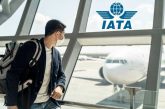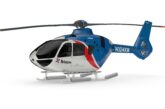
Aviation industry must prioritise safety ahead of profits
Investment in safety is more vital than ever as regional industry expands, discussed aviation safety summit
ATP- arab tourism portal- Dubai, – Aviation players must not risk flight safety in pursuit of profits, heard delegates at the 3rd annual World Aviation Safety Summit which was opened in Dubai today by H.E. Mohammed Abdulla Ahli, Director General, Dubai Civil Aviation Authority (DCAA).
Held under the Patronage of His Highness Sheikh Ahmed bin Saeed Al Maktoum, President of Dubai Civil Aviation Authority, Chairman of Dubai Airports, Chairman and Chief Executive Officer of The Emirates Group, the Summit is being hosted by the Dubai Civil Aviation Authority and organised by the Streamline Marketing Group.

The importance of investing in aircraft and passenger safety emerged as a key area of discussion at the summit, which brought together regional and international aviation experts to share innovative techniques to improve safety in air travel and explore how global safety standards must be implemented.
Safety specialists deliberated if aviation players are taking unnecessary risks to cut costs.
“Aviation growth in the Middle East continues to regularly outpace growth in the global industry by an average of 5 to 10% per cent,” said Jeff Johnson, President of Boeing Middle East. “As air travel continues to expand, airlines and aircraft manufacturers must invest in modernising their aircraft fleet and technology to ensure greater safety for passengers and aircraft.”
“Cost should not be a consideration for airlines when it comes to the safety and security of their passengers,” said Hussein Dabbas, Regional Vice President, Africa and Middle East at The International Air Transport Association (IATA).
Captain Elias Sadek, Vice President Safety & Quality at EgyptAir Holding Company, agreed, flagging attention to the additional funds airlines later spend on handling the consequences of aviation safety failures such as searching for lost aircraft.
“Regulators must make it mandatory for airlines to invest in improving safety technology and systems – we owe it to our passengers, consumers and families,” he added. “If there is no pressure, the funds will be spent elsewhere.”
Aviation experts also discussed the impact of carrying hazardous materials on cargo and passenger aircraft that enhances flight risk.
Mohammed Ali Bin Yalwan Al-Falahi, Investigation Manager Airport Customs, Passenger Operations at Dubai Customs noted that many regional passengers ignore the safety messages communicated by airlines, airports and other authorities.
“Passengers are still unaware about what they should or should not carry on-board an aircraft,” he said. “Many still carry harmful items such as pesticides, chemical powders and even bullets.”
Other speakers and delegates joined in the conversation, emphasising that the relationship between risk and cost is not as simple as it appears. Maintaining the perception of low flying risk is also imperative to the growth of the industry among passengers.
“Demonstrating the return on investment for aviation safety is extremely difficult as the relationship between an action and its impact on safety is not linear,” added Dr Ashley Nunes, an independent industry analyst from France. “There are multiple layers of defences, checklists and automation that impact this causal relationship.”
“Despite all these issues, we must remember that airplanes are still the safest way to travel,” added Hussein Dabbas from IATA. “Last year, of the 3.3 billion passengers who travelled on airplanes across the world, there were only 12 fatal accidents from 38 million global flights. However, even one fatality is one too many.”
Leading aviation safety specialists from around the world gathered at the 3rd annual World Aviation Safety Summit in Dubai today to debate the key strategies and challenges required to improve aircraft safety in the global industry.
Running from 16-17 March 2015 in Dubai, the two-day summit has attracted more than 300 regional and international stakeholders from regulatory authorities, airline operators, airport operators, aircraft manufactures, pilot associations, safety organisations and air traffic control service providers to explore a range of aviation safety topics at panel discussions, strategy sessions and group discussions. Experts also shared regional case studies on how the challenges of integrating and implementing new and existing safety procedures can be overcome.







